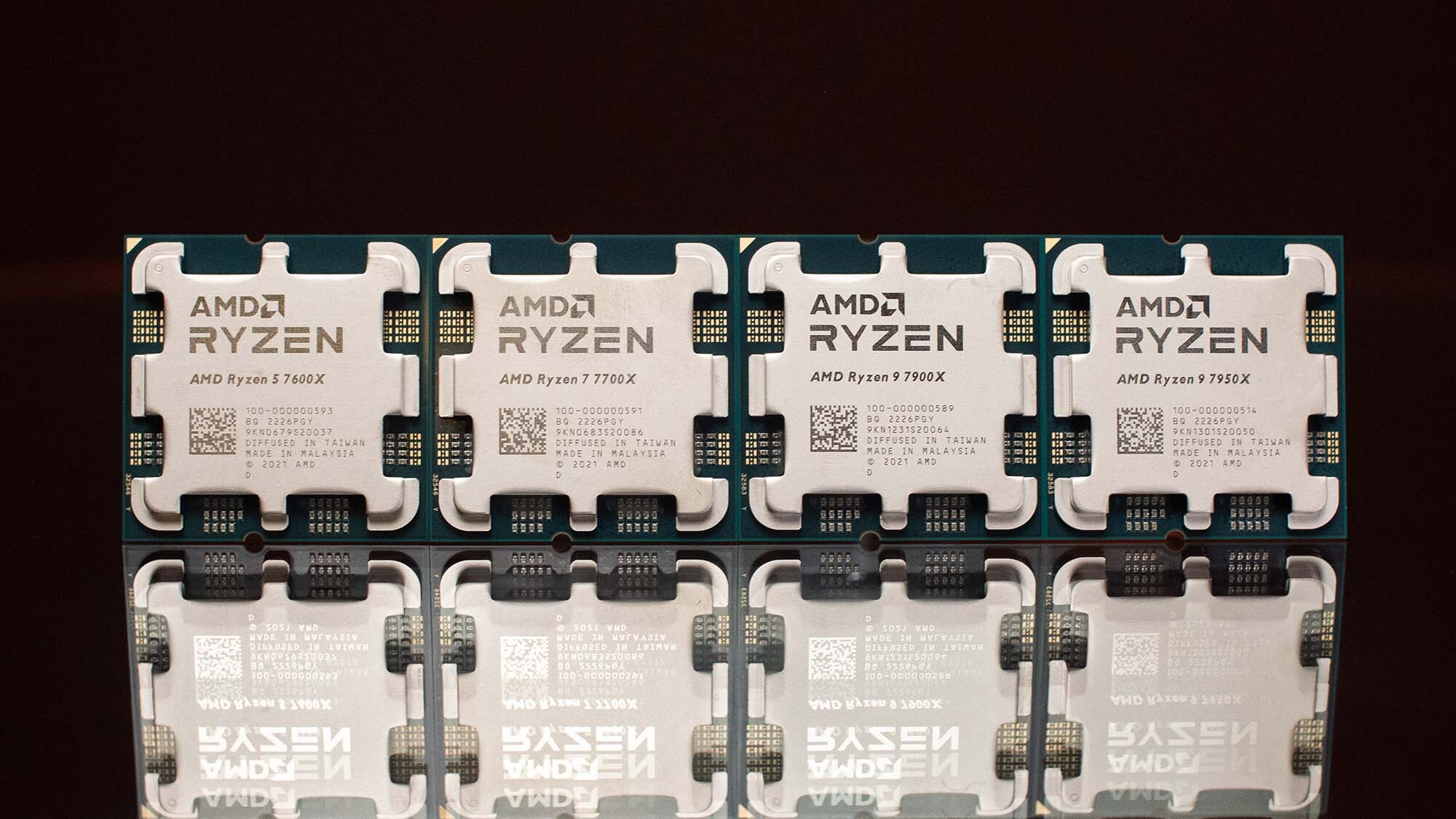This AMD Ryzen 7000 CPU cooling trick is something you really shouldn’t try at home
Never mind an axe to grind, how about a chip?

Sign up for breaking news, reviews, opinion, top tech deals, and more.
You are now subscribed
Your newsletter sign-up was successful
AMD’s Ryzen 7000 processors have come under fire for the design of their integrated heat spreader (IHS), and how it doesn’t help thermals – but there’s a way around this apparently, one that will ensure the chips run a fair bit cooler. However, this is definitely not something we recommend the average user should try (not that they’ll be equipped to anyway).
Why? Well, because it involves taking a shiny new Zen 4 processor and exposing it to a grinding tool. Yes, the solution to the thick IHS for this Ryzen generation – we’ll discuss why it’s beefier later on – is simply to make it thinner by grinding it down.
Obviously this is not something the average PC owner wants to do, but more hardcore types may consider exploring this avenue - and some already have done in the case of JayzTwoCents with the use of expert overclocker Der8auer’s grinding tool – as spotted on Twitter by Andreas Schilling (via Tom’s Hardware).
With a little help of @der8auer and his Ryzen 7000 grinding tool, @JayzTwoCents just showed that you can reduce the temperatures of a Ryzen 9 7950X by up to 10 °C by grinding off the heatspreader by 0.8 mm. Roman cautiously talks about up to 6 °C. pic.twitter.com/TElwxis6Q0October 20, 2022
The result of shaving down the IHS of a Ryzen 9 7950X CPU by 0.8mm proved to be a reduction in temperatures from 94-95C, down to 85-88C, a pretty substantial drop (those were the temps running at 5.1GHz across all-cores for the CPU).
Analysis: The lesser of two evils? Well, not exactly
Essentially, this is an alternative to another risky procedure known as ‘delidding’, where the CPU has the IHS actually removed, which can result in even bigger temperature drops. (Der8auer demonstrated a huge 20C reduction when delidding a 7900X previously, although that was using a special liquid metal thermal grease which is the overclocker’s own custom concoction).
Grinding down the IHS represents a somewhat less risky path – and less fiddly, too, as there’s a lot of extra work in fitting a cooling solution to a delidded (very differently sized) chip – but granted, in both cases, you are voiding your warranty. And unless you really know what you’re doing, you’re running the risk of ruining the CPU as you might imagine when it comes to drastic action like pulling it apart or grinding bits down. Which is why we really wouldn’t recommend this to anyone but expert enthusiasts (who can afford the cost if things go wrong, for that matter).
The whole backdrop to this is that AMD has used a thicker design for the IHS with Zen 4 chips on the AM5 platform (with a new processor socket). This is in order to keep compatibility with new Ryzen 7000 CPUs in terms of existing (AM4 platform) coolers – so folks don’t have to buy a new cooling solution – as the new socket is flatter, meaning the chip sits a little lower (so the thicker IHS makes up for that difference). But that thickness of 1mm extra than usual is somewhat counterproductive for good thermals.
Sign up for breaking news, reviews, opinion, top tech deals, and more.
Now, AMD reckons it’s fine for the Ryzen 9 7950X to tick along at temps like 95C, but some enthusiasts beg to differ, hence the controversy. And hence shaving off 0.8mm to bring the IHS back to about its previous pre-Ryzen 7000 size, having the processor run at more like 85C, a level owners are happier about.
As an aside, don’t forget the IHS is there to provide protection for the CPU, and with delidding that represents an extra risk in terms of leaving the die exposed – whereas grinding it down still leaves a protective lid on the chip, as it were.
If you’re worried about your Zen 4 temps – which may, of course, vary from case to case anyway – rather than go this route, it’s a much better and more feasible idea to look at alternative solutions such as using Eco mode settings (in AMD’s Ryzen Master software) to rein in that heat. (Or undervolting is another option, perhaps).
Darren is a freelancer writing news and features for TechRadar (and occasionally T3) across a broad range of computing topics including CPUs, GPUs, various other hardware, VPNs, antivirus and more. He has written about tech for the best part of three decades, and writes books in his spare time (his debut novel - 'I Know What You Did Last Supper' - was published by Hachette UK in 2013).